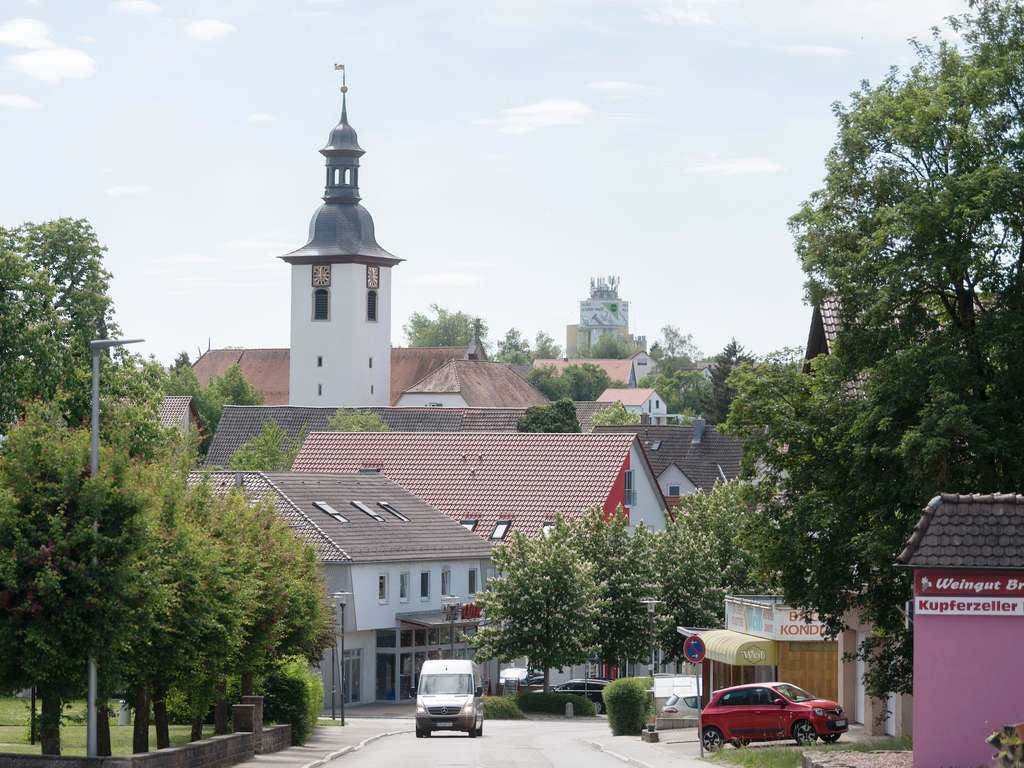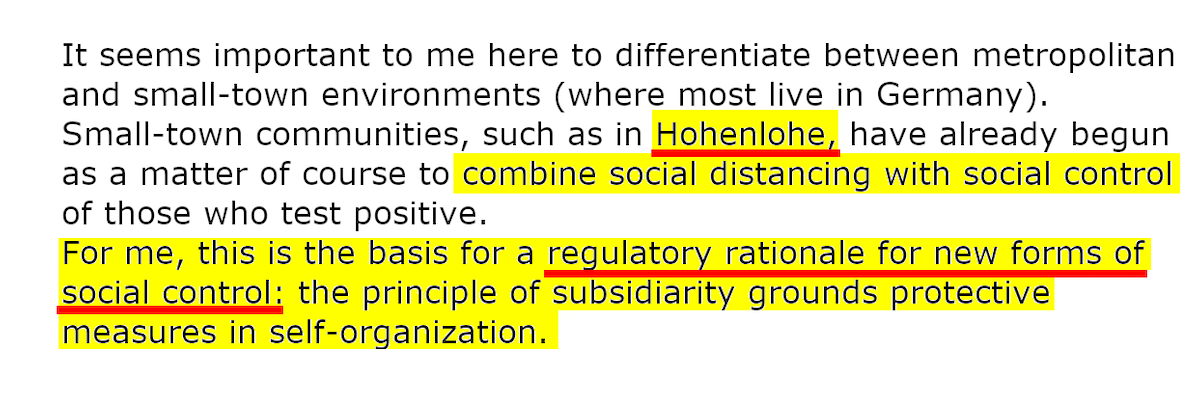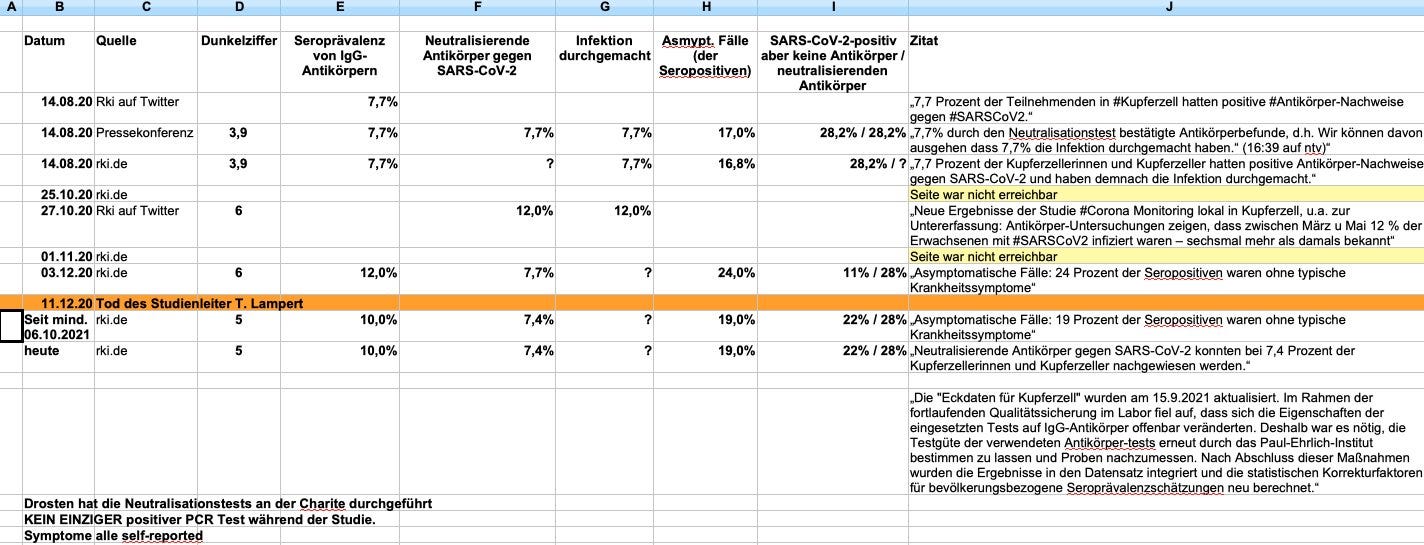The Kupferzell case: Release of raw data refused
In 2020, the RKI conducted a large seroprevalence study at four "Corona hotspots." Conclusive results have not yet been published. Two FOIA requests were rejected with telling justification.
"Corona Monitoring Lokal" - this was the name of an ambitious research project conducted by the RKI in 2020 at four sites to gain insights into the population's basic immunity. Since then, the RKI has been conspicuously quiet about the prospective results: Although data from the second follow-up study in Kupferzell in the fall of 2020 were announced for the first quarter of 2021, they are not available to date. The RKI points out that the data are still "being evaluated" at the moment. Under evaluation - for 16 months? In the meantime, critical voices have been raised on Twitter demanding that the RKI release the data. Two IFG requests have been made: One via the platform "FragDenStaat", the other by legal means. After weeks of silence, the RKI has now taken a detailed position on the Kupferzell case and refused to release the data. One of the reasons for the refusal is striking: "Prematurely released data" could - according to the wording - "thwart forthcoming official measures". The wording raises questions: What "imminent regulatory action" might be at stake, and should regulatory action ideally not be based on those same scientific data?
An interim report on an unfinished antibody study by the RKI that poses a mystery.

It was a choir concert that helped the small town of Kupferzell in Baden-Württemberg to involuntary fame in March 2020: shortly after the "arrival of the Coronavirus in Germany" in March 2020, Germany's first "superspreading event" had occurred in the Kupferzell church. After the concert, a large number of Kupferzell citizens tested positive for Corona. To the mayor's relief, however, the stigma of being an "epidemic stronghold" did not last too long: Kupferzell was chosen as one of four study sites in the RKI research project "CORONA MONOTORING Lokal," along with Berlin-Mitte, Straubing and Bad Feilnbach. The aim of this large-scale population study was to gain fundamental insights into "seroprevalence": How high is the "contamination" of the population with the Coronavirus? How high is the number of unreported cases? How many people have formed antibodies to the virus after surviving an infection? How stable are these antibodies over time? These are all relevant questions in a pandemic - and the project got off to a correspondingly ambitious start: there were celebratory press conferences with the mayor of Kupferzell, speeches by high-ranking employees of the RKI, the German equivalent to the CDC - such as Lars Schaade, as well as extensive testing of over 2203 Kupferzell citizens. The willingness of the Kupferzell citizens to participate was "very high", according to RKI statements. The SWR accompanied all three Kupferzell studies from the beginning with video reports, many other regional and national media reported extensively on the RKI prestige project.
The factsheet of the first study in Kupferzell is linked on the RKI website - but the results of the second and third surveys in Kupferzell are still not available after more than a year. According to a media report of the local paper Echo24, the data of the Kupferzell autumn study (20.-24.10.2020) were already scheduled for the first quarter of 2021 - now we are already in the first quarter of 2022 and the data are still not there. A report by SWR about the Kupferzell Autumn Study has disappeared and can only be accessed in the WebArchive. The associated video report could be secured:
The question arises what actually stands in the way of a timely publication of the RKI antibody study "CORONA MONITORING Lokal" including the Kupferzell autumn data.
Some special features of the Kupferzell-Study

As the first "superspreading hotspot of Germany", Kupferzell in the district of Hohenlohe had a certain symbolic character. This became already apparent in a notorious email document of the German Federal Ministry of the Interior, which was made public under the Freedom of Information Act (FOIA). In one email of this document, a member of the so-called “COVID-19 Taskforce” of the German Ministry of the Interior wrote: "Small-town communities like in Hohenlohe have already naturally begun to combine social distancing with social control of those who test positive." It reads as if social distancing was particularly implemented in the “Corona hotspots” as “the new natural / the new Normal” and a role model for the whole of Germany.
The "CORONA MONITORING Lokal" research project, including the Kupferzell study, was one of the earliest large-scale data collections on Coronavirus in Germany, long before vaccination began. According to the official narrative, the "fresh Wuhan virus" met an "immunologically naive population" here.
In the press conference on 15.08.2020, RKI official Lars Schaade immediately drew the conclusion from the Kupferzell data that the government measures would work: Distance, hygiene, masks, hand washing, quarantine and isolation were the only correct way. This suggests the purpose of the research project may well have been, among other things, to provide the necessary scientific backing for the government measures. So what if the data suddenly no longer supported the government narrative in the desired way? (Interview video German only)
What is striking is the high importance initially attached to the "CORONA MONITORING Local" research project - reflected, among other things, in the relatively large study budget: The total budget of the study was 5 million euros.
On 26.11.2020, a "Rapid communication" specifically on the Kupferzell case was published in the Eurosurveillance Journal - among the authors many well-known names such as Lothar Wieler, Andreas Nitsche, Victor Corman, Lars Schaade and last but not least Christian Drosten, who also performed the neutralization tests for the Kupferzell study at Charité.
The Kupferzell study dealt with the politically quite relevant topic of antibodies. Findings on the long-term behavior of antibodies are crucial both for the assessment of the genesis status and with regard to the need for compulsory vaccination, and should actually be taken into account in political debates - or so it was initially intended. By withholding the data for so long, of course, policy feedback with empiricism is impossible.
Apparently, in the course of the study, there were irregularities in the tests used, among other things. The RKI itself admits this on its site; moreover, it is reflected in the fluctuations of the figures over time according to the RKI's own figures, as a table by TimReality shows. Results apparently had to be recalculated over and over again.

The astonishment over the whereabouts of the Kupferzell data is not just a social media phenomenon. Residents of the Hohenlohe region are also beginning to ask critical questions about the missing data, as evidenced by this recent article by a blogger from a neighboring town to Kupferzell. In it, he asks straightforwardly whether the Kupferzell study has "failed".
For the sake of journalistic diligence, it should also not go unmentioned that one of the two study leaders, Dr. Thomas Lampert, died two months after the Kupferzell fall study, on December 11, 2020, of a "brief serious illness," which is of course not intended to imply a causal connection here. Thomas Lampert was 50 years old, had worked for the RKI for 18 years and had taken over the management of the epidemiology monitoring from March 2020. He led the research project "CORONA MONITORING Lokal" together with his colleague Dr. Claudia Santos-Hövener.
Two FOIA requests and one rejection letter from the RKI
Two FOIA requests concerning the Kupferzell raw data were submitted to the RKI. The first was issued on 13.11.2020 via the portal FragDenStaat. The RKI exceeded the response deadline for this request by more than seven weeks. A second FOIA request was made on 18.12.2021 by legal means, the applicant being the author of this article, together with the lawyer Friedemann Däblitz. After six weeks, on 03.02.2022, the RKI answered just in time with a rejection notice. Both inquiries were answered by the RKI on the same day, the shorter version is publicly available on the platform “FragDenStaat”.
The next step in the legal process is that an appeal can be filed within the next four weeks. One appeal has already been filed on FragDenStaat, and the other one is being prepared. A final legal result on the Kupferzell case is therefore still pending.
The RKI's longer version of the rejection notice was obtained by the second FOIA request by legal means in the form of a 5-page PDF document. It contains some extremely interesting formulations and is worthwhile to be analyzed page by page.
On the first page it can be seen that the RKI differentiates between results concerning the umbrella study "CORONA MONITORING Lokal" and the raw data of the Kupferzell autumn study. A negative decision is issued with the reason that a "claim according to the IFG does not exist" and the data are not yet "available in official form". A publication is excluded according to §§ 3 No. 7, 4, 5 Para. 1, 6 IFG.
The question that arises at this point: What exactly makes data "official" data, and why have the Kupferzell data not yet been converted into official data - especially since the study was publicly funded?
On the second page, it is clear that the research questions of the second Kupferzell study were quite different from the first: They were two different "sets of questions" with different foci. Regarding the first study, the RKI contradicts itself: First, no official data were available, but in the very next paragraph the factsheet is linked, which contains just such data.
Accordingly, the Kupferzell autumn study was specifically concerned with the behavior of antibodies in recovered test persons in whom antibodies could previously be detected. This is also the reason for the small selection of study participants. From 2203 study participants of the first summer study, the RKI "asked 276 study participants (predominantly with proven antibodies) from Kupferzell again for blood samples".
Questions 1) and 2) reveal preliminary assumptions with which the RKI operated: it was implicitly assumed that there would be a "change" in the antibodies over time - an increase or a decrease. A constant level of antibodies after six months did not seem to be in the expectation horizon of the researchers.
On the third page, the RKI argues that "seroprevalence" was asked for, but this could not be derived from the autumn study at all. However, the exact question for the second study was not available to the applicants, as the RKI has not yet published a factsheet on the subject. All that was known from media reports was that the follow-up study was about antibodies over time.
The following is the key sentence of the notice, which is very informative even without figures provided:
"As a result, changes in antibody status over time were detectable in so few participants that no statistically robust conclusions can be drawn."
Why are relatively constant antibody levels after six months, in 276 recovered persons who had previously formed antibodies, actually not a statistically robust result - related to the very same limited "population" of 276 persons? There are also studies with even much smaller samples that deliver valid results within the framework of the respective research question. Moreover, the 276 subjects of the Kupferzell autumn study were specially hand-picked by the RKI - their "pre-selection" thus corresponded to the research question chosen by the RKI itself.
In view of the research question, the results of the study are not likely to be irrelevant for political decisions. If stable antibody levels over six months or longer could be consistently demonstrated in local studies, this would, for example, argue against a withdrawal of the convalescent status after six months - not to mention only three months.
Wiping away collected data as "statistically inconclusive" as soon as politically disagreeable results emerge is scientifically dishonest.
The RKI's claim that the Kupferzell autumn data are "not statistically reliable" refers either to an incorrect study design (too few subjects invited) or to other, systematic sources of error at the RKI. However, neither of these can be assumed for the time being. The informative value of any kind of data unfolds in the context of its contextualization. There is no reason to assume that the RKI would not be aware of this simple fact.
Under point b), the RKI specifically rejects the release of the raw Kupferzell data, citing their alleged "confidentiality". This argument is also likely to be invalid, since the study was financed from public funds and, in principle, there is always the possibility of anonymizing data and bundling them statistically. In addition, it can be assumed that an informative discussion took place with all study participants in advance, during which the subjects gave their written consent to the use of the data for scientific purposes - otherwise the performance of a scientific study would not have been possible in purely legal terms.
The unconvincing argument of an alleged "confidentiality of the data" is further elaborated on the fourth page:
"Especially in a small municipality like Kupferzell" it is therefore "possible with little effort to draw conclusions about the participating person on the basis of the personal characteristics collected."
This "argument" must be decisively rejected: Percentages related to the population can by no means be used to draw conclusions about individuals.
The next sentence is the real "hot potato" of the notice:
"The right to access to information also does not exist according to § 3 No.3 lit. b) IFG, if and as long as the deliberations of public authorities are affected. According to § 4 para. 1 IFG, access to information shall also be refused for drafts of decisions as well as work and decisions for their immediate preparation, insofar and as long as the success of the decision or upcoming official measures would be thwarted by the premature disclosure of the information."
The RKI's reasoning actually resembles a minor sensation, but it raises more questions than it answers: what "imminent official measures" could it possibly be about, and why could early disclosure of the Kupferzell data "thwart" them? Shouldn't regulatory action at best be based on scientifically collected data? To what extent might premature release of the Kupferzell data "compromise agency deliberations"?
It is also interesting that the RKI holds out the prospect of publishing all the results of the "CORONA MONITORING Lokal" study in the course of 2022 - after all, this promise has now been made in writing by the RKI. So we can be curious.
On the last page, the possibility of an objection within a period of four weeks is pointed out. This is currently being initiated by the applicants of both IFG requests. The Kupferzell case is therefore far from over.
Kupferzell - a symbol of a Corona policy in Germany that is decoupled from science?
The Kupferzell case shows, as if through a burning glass, the enormous interweaving of politics and science during the Corona crisis in Germany, and the problems that go hand in hand with it: Similar to the scandal about the manipulated figures of the DIVI register or the share of unvaccinated persons in ITS occupancy, the motto seems to apply to the case of the RKI research project "CORONA MONITORING Lokal", which has remained unfinished to this day:
What doesn't fit, is made to fit - or, best of all, concealed altogether.
Quellen:
RKI project “CORONA Monitoring Lokal”
RKI link to the Kupferzell study
Framacalc Tabelle zu den Daten der ersten Studie by TimReality
SWR report on the first press conference in Kupferzell (Video no longer available)
Tagesschau report on the first Kupferzell study
WELT interview with Lars Schaade at the press conference on 15.08.2020
Deutschlandfunk interview with Claudia Santos Hövener
Report “Echo24” on the Kupferzell study
Deleted SWR report on the second Kupferzell study (source video)
Archive Link to the deleted SWR report
SWR report on the third study in Kupferzell (LongCovid)
Corona study in Kupferzell failed? Local blog from the neighboring town of Kupferzell
Twitter Thread about Kupferzell by TimReality, one of the FOIA requesters via FragDenStaat
Twitter Thread about Kupferzell by Aya Velázquez
My journalistic work is independent and is financed exclusively by my readers. Thank you very much for your support!
Bank transfer: Aya Velázquez, DE91 4306 0967 1115 8962 01
PayPal: aya.velazquez@protonmail.com
Bitcoin: bc1qwmdx6cn5ska80l8gwv7ywx3tz2h5v2xe4acpas















